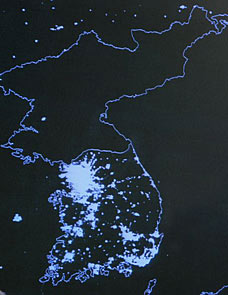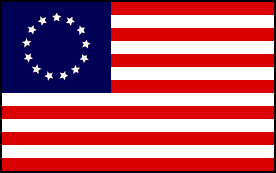A Stark Reality

This picture truly tells a story. It’s a satellite photograph of the
The south is lit up because it’s a very prosperous and successful, capitalist regime. In fact,
The stark reality of
Recently on the Tonight Show, in his monologue, Jay Leno joked that electrical power is shut down in
Some of the environmental challenges that the North faces are; water pollution, inadequate supplies of potable water; waterborne diseases, deforestation with soil erosion and degradation
As far as religion is concerned,
So with such a high literacy rate, and some natural resources, why is
North Korea’s industrial capital stock is nearly gone because of years of underinvestment and shortages of spare parts, and it’s industrial and power output have been in decline and continue to decline.
It’s only because of massive international aid in the form of food deliveries that have allowed the North Korean people to escape mass starvation. But they continue to suffer from malnutrition and poor living conditions.
North Koreans have been hungry for a long, long, time.
Of course,
In 2004, Kim Jong Il, Chairman of the National Defense Commission of North Korea, Supreme Commander of the Korean People's Army, and General Secretary of the Workers' Party of Korea, (or despotic dictator) formalized an arrangement allowing private "farmers markets" to begin selling goods. He also permitted some private farming on an experimental basis in an attempt to improve agricultural output.
But then, In October 2005, Kim Jong Il reversed some of these policies by forbidding the private sale of grain and he reinstated a centralized food ration system. Two months later, the regime confirmed that it was going to terminate all international humanitarian assistance operations, and to restrict the activities of aid organizations such as the World Food Program.
In fact, North Koreans are so desperate to escape famine, economic deprivation, and political oppression, that neighboring
Can you imagine how bad life must be that you would want to escape to
So, while
Of course, like any good dictator, Kim Jong Il’s political control remains his top concern, and his people be damned to starvation.



1 Comments:
It's a shame - those people are starving.
I have a map of the night sky for the world. I showed the Korean peninsula to the girlies and told them, 'That's where communism will get you.'
Post a Comment
<< Home